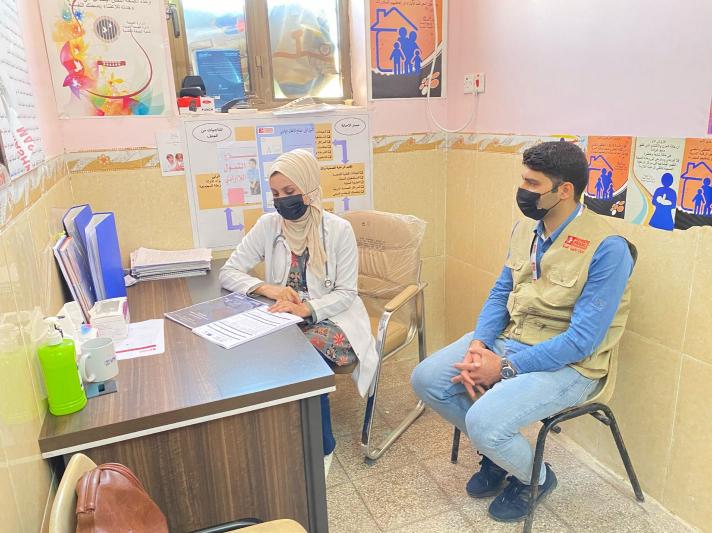Fatima is a 27 years old medical doctor who lives in Anbar province, Iraq. A skilled physician, Fatima considers herself competent in physical health interventions however she lacked experience in mental and psychological interventions. She became interested in mental health when seeing the number of mood disorders increasing in the community, in addition to the psychological and social consequences of COVID-19.
Encouraged by her line manager and colleagues, Fatima decided to join the WHO’s mhGAP training. The project aims to improve access to mental health and psychosocial support services. The mhGAP program consists of interventions to prevent and manage the most common mental, neurological and substance use disorders.
The training proved to be very useful, as it helped her a lot in the identification of patients with mental health needs, as well as in the diagnostic processes and in treatment planning.
Meeting a young man with suicidal thoughts had an important impact on Fatima, and raised her mo-tivation to work with patients with mental health needs. Fatima has started to see the importance of mental health and psychosocial support services in the primary healthcare.Together with her col-leagues, she daily meets two or three patients with mental health needs, including people with de-pression, obsessive-compulsive disorders, anxiety disorders, trauma-related disorders, hyperactivity disorders, autistic disorders and bedwetting.
Doctor Fatima is looking forward to attend the training on gender based violence within the same project because she considers it important to have women providing services for females who are survivors of gender based violence. Fatima was among the first ones to enroll herself to this training!
R, is a 53 year old man, who also lives in Iraq with his two sisters and his brother’s family. He has suffered from headaches for several years. “I had severe headaches and felt like there was something inside my head”, he explains . The frequency of the headaches depended on his workload and his family’s situation. Two years ago, R underwent a divorce that impacted his behavior and mood, including feeling tired and nervous, which pushed him towards isolation. R’s brother became concerned and encouraged him to visit the local primary health care center to seek help.
In the health care center R met Saadi, a medical assistant with a diploma in Public Health. Saadi attended the same mhGAP training on mental health as Doctor Fatima and has been helping R cope with his situation. He has been meeting him twice a week to provide him with psychological support in addition to giving him dietary advice, encouraging him to go for walks every day and to socialize with others. Saadi also involved R’s brother in the process pushing him to involve R in family life activities.
After the third session, R’s situation improved considerably. His relationship with his family is restored, he goes for walks in the evenings and engages with other people in the community. His relationship with others are now more peaceful, whether within the family or outside of the family. Saadi continues to support R via regular sessions at the primary health care center. R feels that his life is now good and believes that it will continue like this.
The mhGAP project is run by Première Urgence Internationale, in consortium with International Med-ical Corps, Action Against Hunger and Handicap International, by funding of EU Regional Trust Fund in Response to the Syria Crisis, the 'Madad' Fund.

